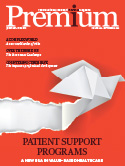Health insurance law revised in Japan

The Cabinet has set in motion a legislative revision to make the national health insurance program largely applicable only to workers and their dependents residing in Japan.
The revision to the health insurance law is aimed at blocking use of the system by foreigners who have never lived in Japan, including relatives of soon-to-arrive laborers, as the country starts to accept more foreign workers to tackle labor shortages in the rapidly aging country, according to a report in the Japan Times.
If non-working spouses of public pension recipients living in Japan also wish to receive a spousal pension, the revised law now specifies that they too must reside within Japan.
The new amendment covers eight sets of laws related to the social security system, mainly in the field of medical services.
Japan’s previous employee health insurance system offered cover for workers’ dependents living abroad, but authorities had faced difficulties in checking whether they were actually kin, or financially dependent, on the workers.
The revised law also enables people to present national ID cards, known as My Number cards, in place of the standard health insurance certificates issued by the state-run program.
The government aims to link state medical and nursing care databases and provide anonymized information to research organizations and drugmakers, among others, for a fee.





































